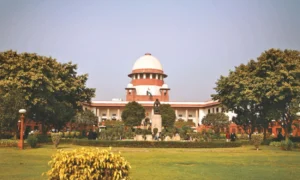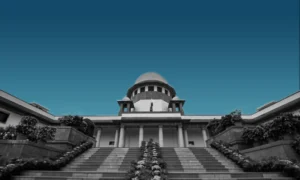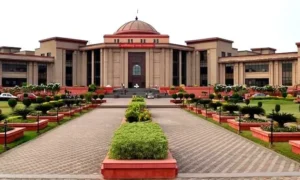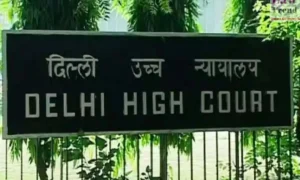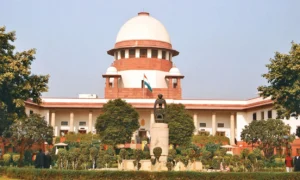
By Dr Swati Jindal Garg
In a scathing judgment, the Supreme Court has criticised the Allahabad High Court for treating the Witness Protection Scheme, 2018, as a substitute for bail cancellation, passing what it called “cyclostyled template orders” in dozens of cases.
The matter arose in Phireram vs State of Uttar Pradesh, where the complainant sought cancellation of bail after the accused, charged under Sections 302, 201, 364 and 120-B of the IPC, allegedly threatened witnesses in violation of bail conditions. The High Court dismissed the plea, redirecting the complainant to seek recourse under the Witness Protection Scheme.
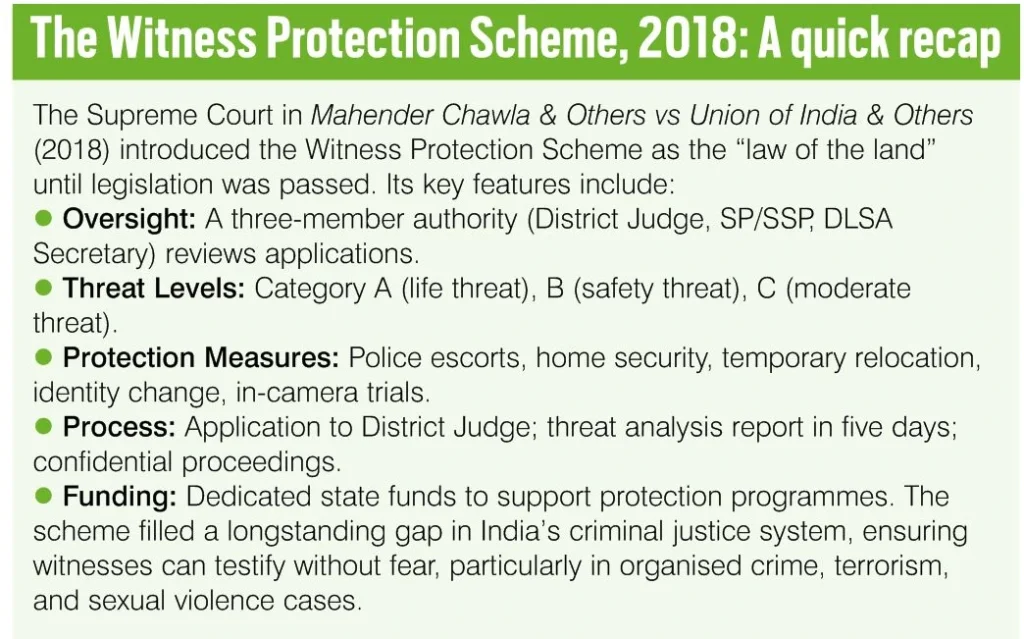
When the appeal reached the apex court, Justices JB Pardiwala and Sandeep Mehta took sharp exception to this reasoning.
They held that this was “an outright case of breach” of bail terms, where cancellation—not witness protection—was the appropriate remedy.
TEMPLATE JUSTICE CALLED OUT
The Supreme Court revealed that nearly 40 similar bail cancellation applications had been disposed of by the Allahabad High Court since April 2025, all with nearly identical language. “We have come across a catena of orders…proceeding on an incorrect assumption of the law, more particularly that the Witness Protection Scheme is a substitute for cancellation of bail,” the top court said. The bench observed that such mechanical reasoning “undermines judicial scrutiny and reduces serious applications to a routine disposal.” “To substitute one for the other is to denude the court of its authority and make a mockery of the conditions imposed while granting bail,” the judges declared.
DRAWING THE LINE
In its reasoning, the Supreme Court made a crucial distinction:
- Witness Protection Scheme—remedial and curative, aimed at neutralising threats once they arise.
- Bail Cancellation—preventive and supervisory, ensuring trials proceed free from intimidation.
The Court stressed that witness protection is a state obligation, while bail cancellation is a judicial function. One cannot replace the other. It also criticised prosecutors for failing to assist the High Court in applying the correct law, noting that the public prosecutor had himself argued that complainants be pushed to the Witness Protection Scheme instead of pursuing cancellation.
PURPOSE OF WITNESS PROTECTION
The bench reaffirmed the importance of the Witness Protection Scheme, introduced in Mahender Chawla vs Union of India (2018), as essential for fair trials. Witness intimidation corrodes the justice process, and protection measures—from escorts to relocation—are vital safeguards.
But the judges stressed that the scheme was never designed to shield accused persons who abuse bail. It protects witnesses from threats; it does not excuse courts from cancelling bail when conditions are violated. “If witnesses cannot depose freely, justice itself becomes the casualty,” the bench warned.
THE WAY FORWARD
By drawing a firm line between remedial witness protection and preventive bail cancellation, the Supreme Court has reset the legal framework. The ruling ensures that bail conditions remain enforceable and that accused persons cannot misuse liberty under cover of witness protection schemes.
The judgment, observers believe, restores the seriousness of bail orders and reasserts judicial responsibility in supervising trials. As the Court concluded, bail is a privilege, not a license for intimidation.
—The author is an Advocate-on-Record practising in the Supreme Court, Delhi High Court and all district courts and tribunals in Delhi
📰 Crime Today News is proudly sponsored by DRYFRUIT & CO – A Brand by eFabby Global LLC
Design & Developed by Yes Mom Hosting

